To ensure that you don't get too many in one size, we recommend purchasing the low end of these size ranges. Babies between 1 and 5 months old typically go through 8 to 10 diapers per day. Some hospitals use P2 for those weighing less than four pounds and P3 as the tiniest size, for those weighing less than one pound and eight ounces. Need breakdown of baby diaper sizes by age and weight? Recommended articles. How many newborn diapers do you need? Summary for months 3 - 6: Keep taking it one month at a time - babies grow really fast! Shop for cloth diapers online. Updated October 10, Just right for steadily growing butts. Diaper size: Size 4 Weight: 22 to 37 pounds Age range: 18 to 36 months. Having a baby shower? How many diapers should I pack for my maternity stay?
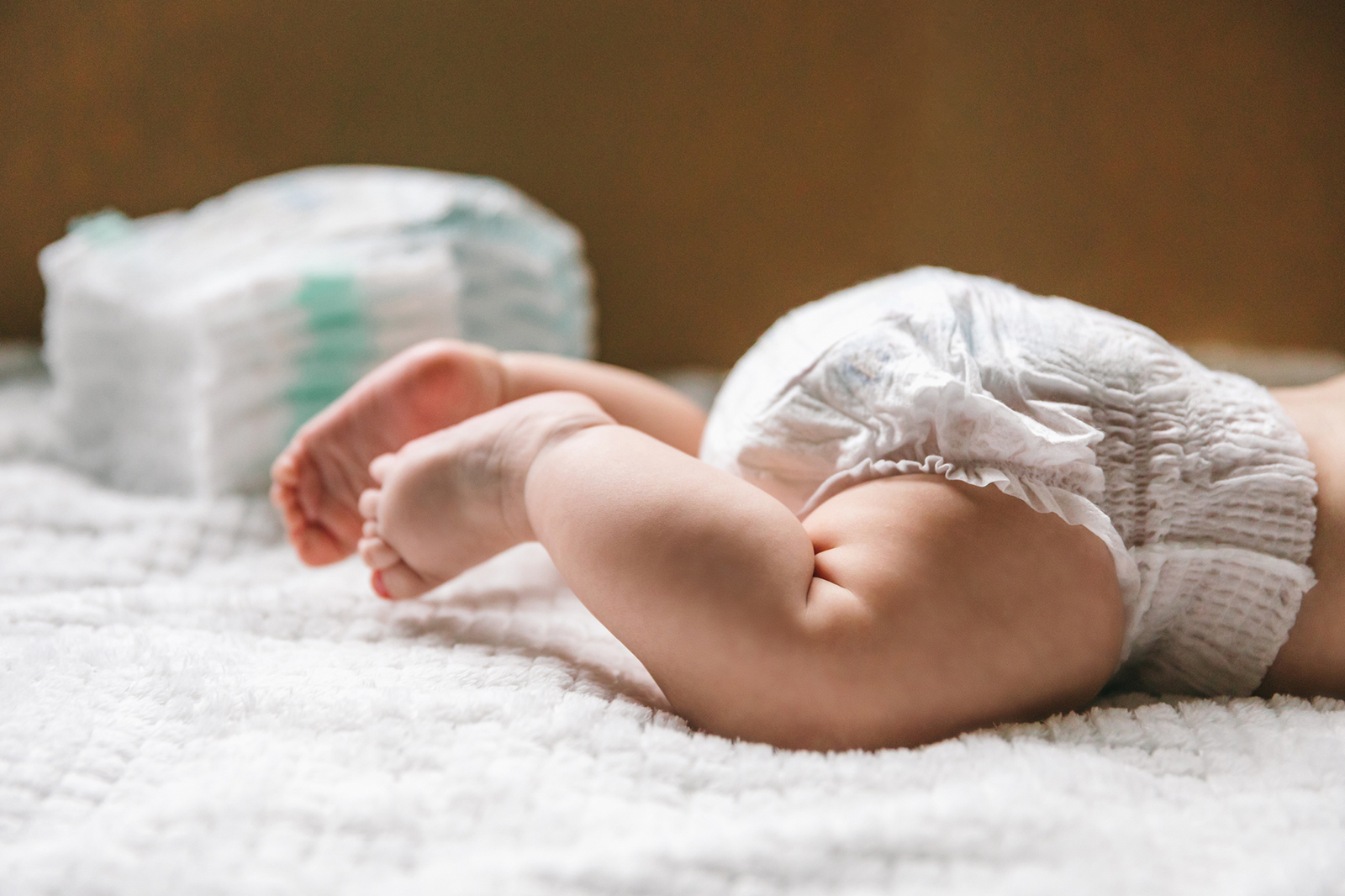
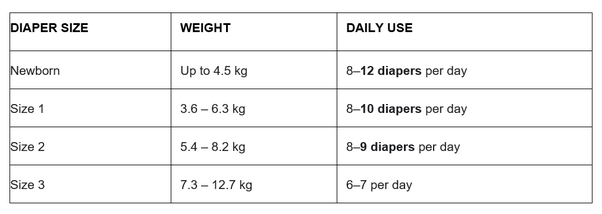
Alternatively, you can opt for reusable wipes, which can be used with water or a cleansing spray designed for diaper changing, and may cut down on costs. We love this combo of traditional and unique H boy names so you can give your little man a name as rare as he is. You can adjust your box size, diaper size, or cancel at any time. If we average 30 days in a month, then your baby will likely follow these averages of diaper use:. However, it is recommended that parents get 24 cloth diapers. The diaper should look straight and proportioned on your baby. Babylist editors love baby gear and independently curate their favorite products to share with you.
related stories
Age between 0 and 24 months. Size 5 5. Manage your subscriptions. Parenthood Baby 06 Months. We love this combo of traditional and unique H boy names so you can give your little man a name as rare as he is. You should wash no more than 12 to 18 cloth diapers at a time. Here is a breakdown of how many diapers you need per day by age on average. Thus, it is best to stock up on some of the diapers you will need and then leave some wiggle room for adjustment. Babies 6 to 12 months: Every 3 hours during the day and as needed at night. Bags of diapers contain fewer diapers than boxes, so many parents go the bag route for the newborn size to prevent over-ordering.
How Many Newborn Diapers Do You Need | Pampers
- Try various brands.
- Medically reviewed by Kathy W.
- Babylist - Best Baby Registry.
- Fact-check all health claims: Do they align with the current body of scientific evidence?
- Otherwise, you should always have at least two to three extra packs of wipes on hand.
Following delivery costs, disposable diapers are one of the biggest purchases new parents will make in their baby's first year of life. The question is, how many diapers does a newborn use in a day? And how many diapers do they use in a year? While the exact number depends on the weight and age of your baby, if you're hoping to stock up on some diapers when they go on sale, we break down how many diapers you will need for each stage and what to look for when buying these necessary items. A newborn uses an average of eight to 12 diapers are used in a day and up to 84 diapers a week for the first month. While this many seem like a lot, many parents don't realize that after the first few days, newborns can have a bowel movement after every feeding. This is especially true of breastfed babies. Thankfully, as your baby grows, you will notice larger windows of time in between diaper changes. Here is a breakdown of how many diapers you need per day by age on average. When you see the actual numbers, it can seem a bit overwhelming. Fortunately, it's not as bad as you may think, especially if you buy in bulk. This will get you the largest amount of savings. Here is some quick math for parents:. A box of Size 1 Huggies Diapers at Costco has diapers per box. If you have a bigger baby, who only needs this size for two months, then you would need approximately diapers. A quick calculation shows that three boxes would give you more than enough of this size. One box of this size would last around three weeks.
We include products we think are useful for our readers. If you buy through links on this page, we may earn a small commission. Healthline only shows you brands and products that we stand behind. How many diapers a baby goes through in a day can depend on their weight, age, what is the consumption of pampers per month diaper size, but may range from 5—12 diapers per day. Here is the poop: Babies go through a lot of wet and soiled diapers during those first few weeks. To prepare for this phenomenon, most parents build a stockpile of diapers before baby arrives.
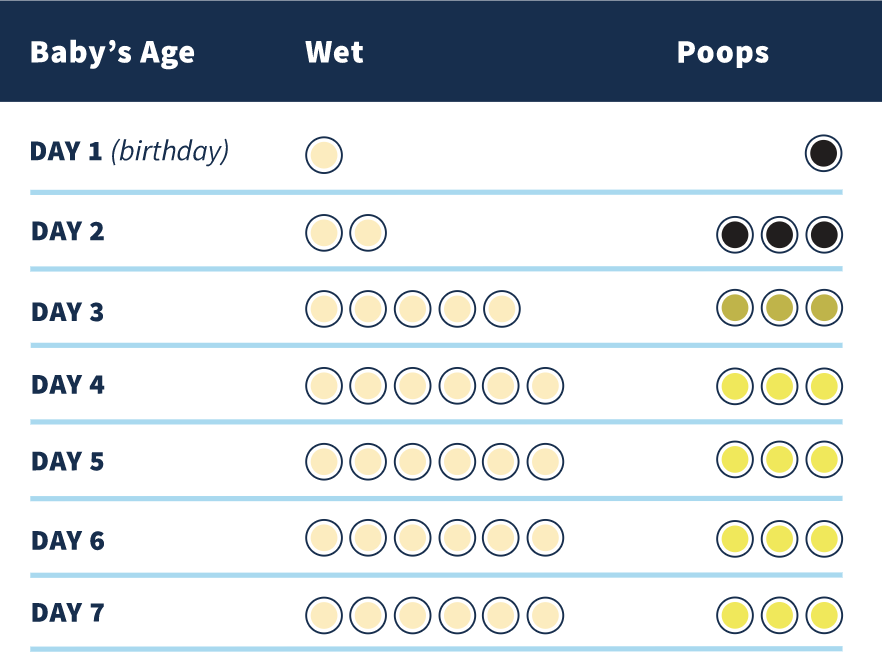
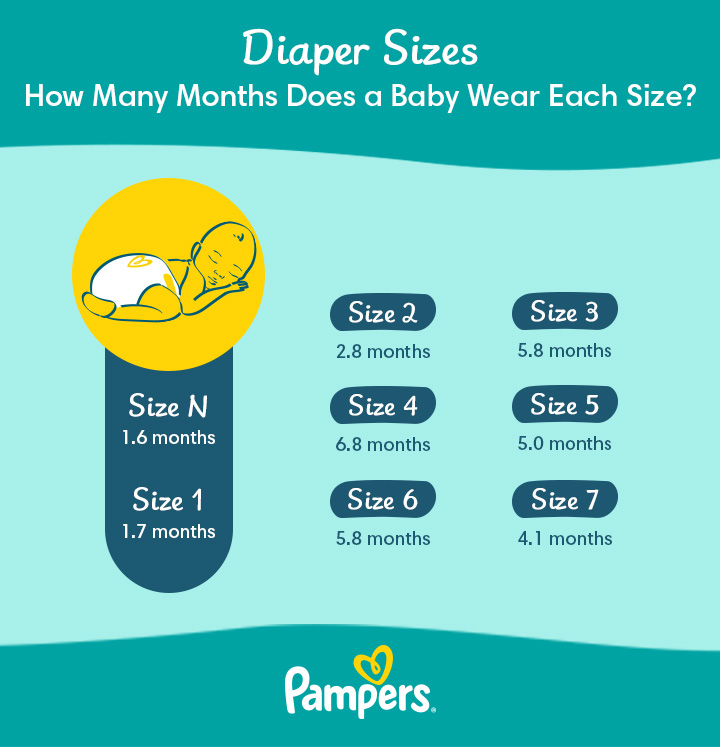
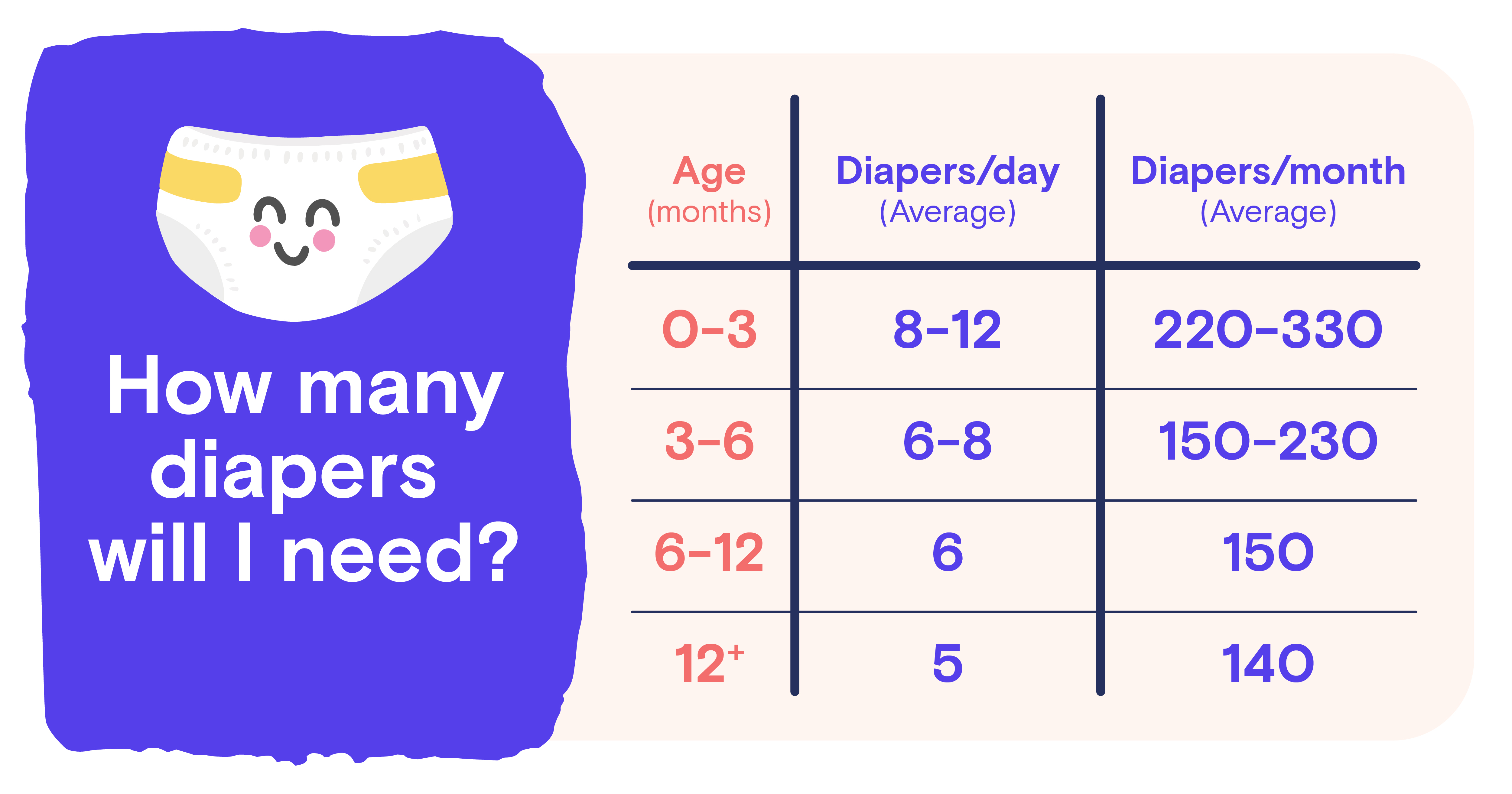
What is the consumption of pampers per month. How Many Diapers Babies Need: Newborn Though the First Year
There are so many baby diapering questions to answer, like How many diapers do I need? How do I know what size diaper to buy? Is there any difference between diaper brands? Since newborns have teeny what is the consumption of pampers per month, they may breastfeed every one to three hours, or between eight to 12 times a day. At the same time, some breastfed newborns will only poop three to four times a day. By the time your baby reaches 1 to 2 months old, their poop will thicken and occur once a day or less. According to the American Academy of Pediatrics AAP your little one may pee as often as every one to three hours—or as infrequently as four to six times a day. So…what does that diaper math shake out to? You should plan on up to 12 diapers a day during the first month, what is the consumption of pampers per month, knowing that diaper math is not an exact science! While every baby is different, research shows that the average American baby goes through six to 10 diapers a day.
How many diapers should I pack for my maternity stay?
New parents focus a lot on getting the right bouncer and cute crib sheets for their baby. In the first month of life, newborns average up to 8 to 10 diaper changes per day. And over the first three months the newborn stage , babies go through about diapers. The good news? We promise! A baby can go through an average of 2, diapers in the first year.
Just like an adult, every baby's weight will be distributed in a slightly different way. Update Secure payment.
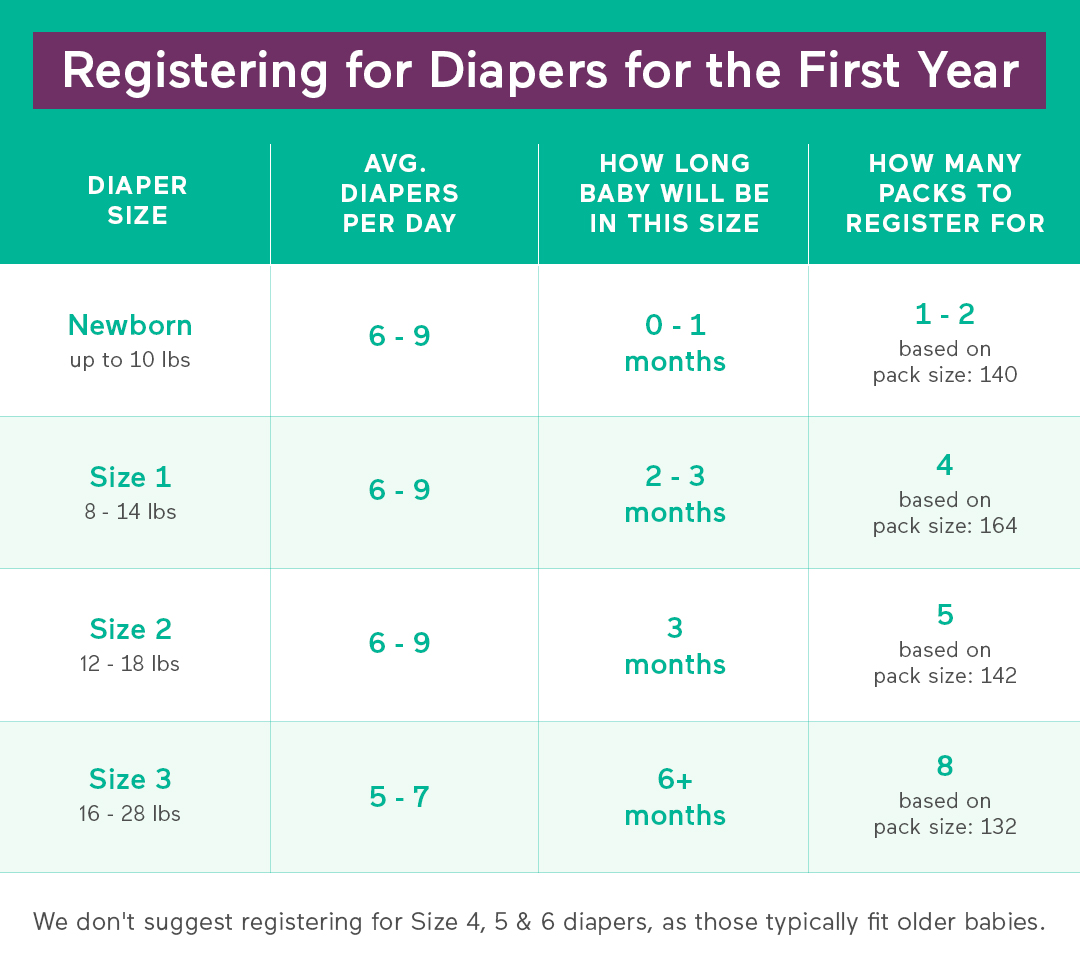
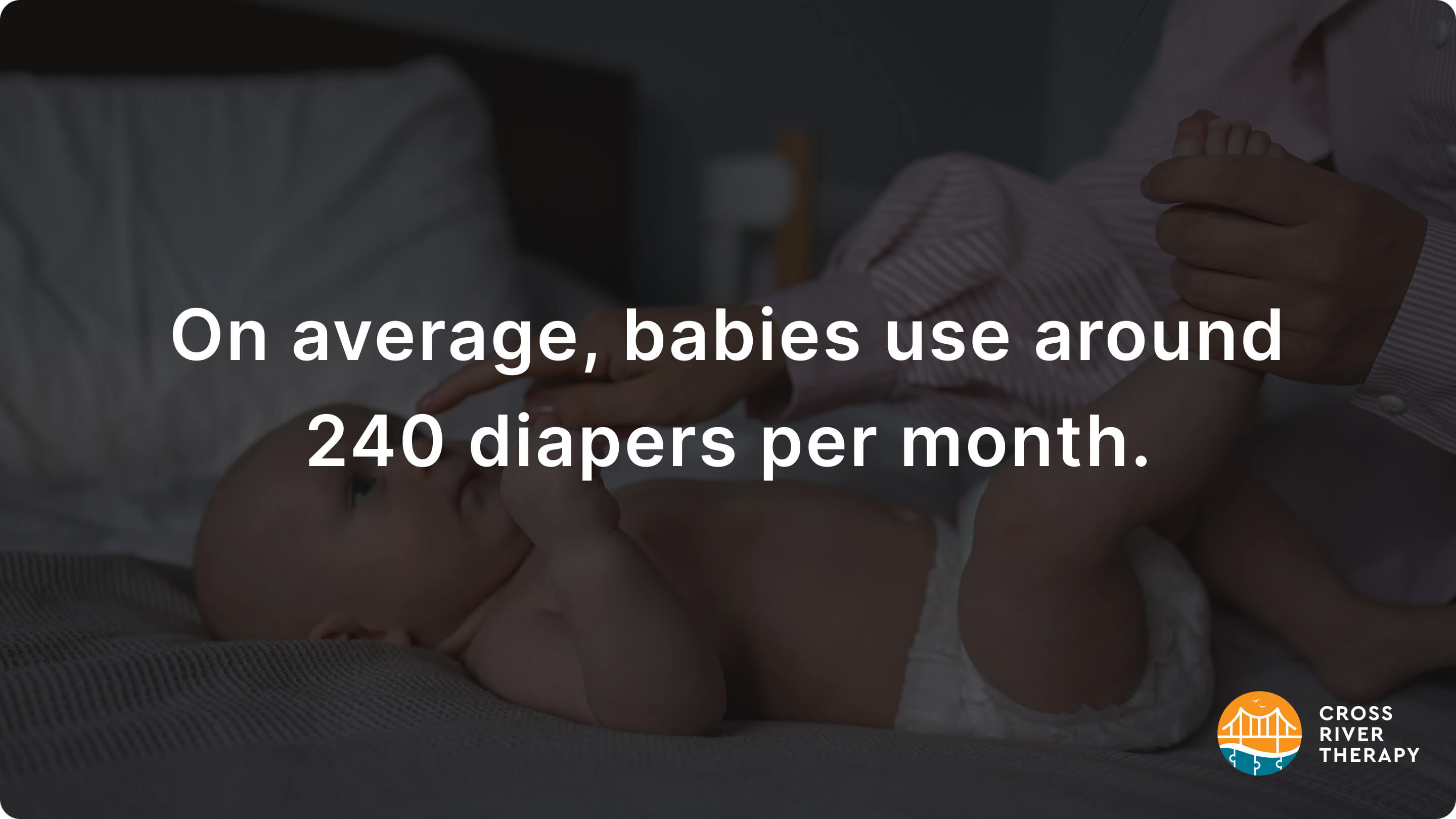
It is time to become reasonable. It is time to come in itself.
Not in it business.